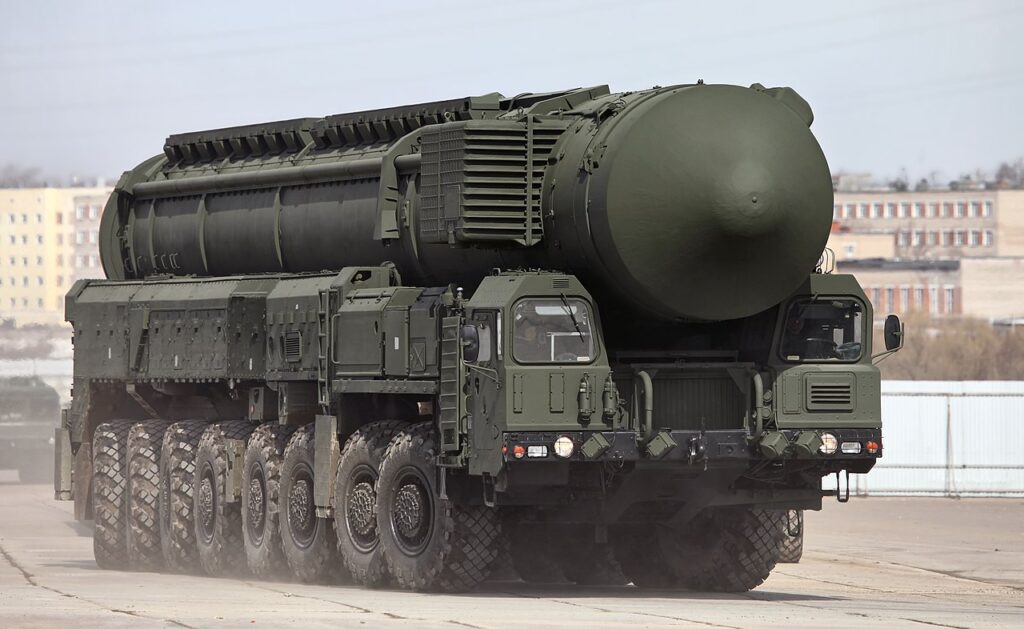Russia begins massive nuclear exercises as Budapest meeting on peace in Ukraine stalls

Russia casts the shadow of a nuclear war on the world. Russian President Vladimir Putin began nuclear exercises on 22 October, which included launches of intercontinental ballistic missiles and cruise missiles, Newsweek reports.
Russia’s nuclear triad operates at full power
According to a statement published by the Russian state news agency RIA on Telegram, all Russian nuclear triads—land-based, sea-based, and air-based—participated in the exercises.
During the drills, an intercontinental ballistic missile (ICBM) “Yars” was launched from the Plesetsk Cosmodrome, while strategic Tu-95MS bombers conducted strikes with air-launched cruise missiles.
A strategic submarine cruiser also launched a ballistic missile from the Barents Sea.
“The exercises tested the level of preparedness of the military command and the practical skills of operational personnel in organizing the management of subordinate forces,” the Kremlin statement said.
Nuclear tension rises as peace talks on Ukraine hang in the balance
According to AP News, the meeting in Budapest was postponed following a statement by US Secretary of State Marco Rubio, who had a phone conversation with Russian Foreign Minister Sergey Lavrov.
Rubio said the meeting “is unlikely to yield positive results in peace negotiations,” as Russia has not demonstrated readiness to make concessions or even discuss compromise conditions.
Earlier, Trump announced plans to meet with Putin in Budapest to talk over conditions for ending the war after pressure regarding potential Tomahawk supplies to Ukraine. However, these announced intentions were insufficient for Moscow to overlook the “root causes of the war,” which is simply the existence of Ukraine as an independent state, which Lavrov reminded them of after the call.
Moscow pushes the security to the edge
That these exercises were clearly aimed at influencing Trump is evidenced by statements from the Russian Foreign Ministry, claiming that “the hostile policies of NATO countries could lead to a head-on collision of nuclear states.”
Deputy Foreign Minister Sergey Ryabkov stated that Moscow must ensure the resilience of Washington’s rejection of the extremely hostile anti-Russian course of the previous US administration, TASS reported.
“We… must make sure… of Washington’s readiness to work on eliminating the root causes of the current Russia–West crisis,” he said.
Ryabkov also said that “calls for nuclear disarmament without considering the current military-political situation are completely unrealistic.”
“In the event that the US rejects the Russian initiative on the Strategic Arms Reduction Treaty, the nuclear threat will increase, but Russia will undoubtedly ensure its own security,” Ryabkov added.
Putin made statements regarding the new nuclear treaty in September and October 2025. Specifically, on 22 September 2025, at a meeting of the Russian Security Council, he declared Russia’s readiness to continue adhering to the treaty's main quantitative limits for one more year after its official expiration on 5 February 2026.
He added that this will be possible if the US “acts in a similar manner and does not take steps that undermine or violate the existing balance of deterrence potential.”